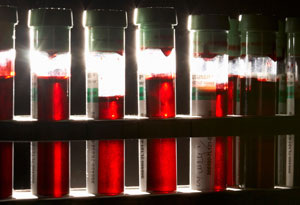"Why Am I So Tired?" 4 Overlooked Causes of Extreme Fatigue

Photo: Thinkstock
PAGE 3
Tired Blood
Heavy menstrual periods, pregnancy, avoidance of red meat, or being a vegetarian or a serious distance runner can all drain your body's stores of energizing iron, leaving you anemic. That means underpowered red blood cells can't deliver enough oxygen to every cell in your body, says iron researcher Rebecca J. Stoltzfus, PhD, professor of nutrition at Cornell University. Your muscles may feel weak, your thinking gets cloudy. One in five women and half of all pregnant women may have low iron.
Why It's Overlooked: In a blood test, having numbers at the low end of normal can mean you won't get treatment even though it could help. Studies show that treating anemia with iron supplements under a doctor's care can relieve fatigue. (Never take iron supplements on your own—about one in 200 people have a genetic condition in which their bodies can't process iron, leaving them vulnerable to overdose.)
Other Symptoms: Abnormally pale skin. A fast heartbeat. Irritability.
Tests: Hemoglobin and hematocrit screens will reveal the levels of iron-rich, oxygen-carrying hemoglobin in your blood and the number of red blood cells. Your doctor should also look at the size and color of your red blood cells (small and pale could mean trouble). Ask about a serum ferritin test, too—it measures a protein that helps store iron.
Treatment: Expect to get a short course of iron supplements and advice to follow an iron-rich diet. "Your doctor will retest your blood in one to two months. If your iron levels are rising, you'll continue on the same plan for a few more months to rebuild your reserves," says Matthew Heeney, MD, director of the Hematology Clinic, Children's Hospital Boston. "If levels are still low, your doctor will look for other causes." These can include mild but chronic internal bleeding or compromised blood cell production.
Overlooked Cause #4: Liver Virus
As a reminder, always consult your doctor for medical advice and treatment before starting any program.



